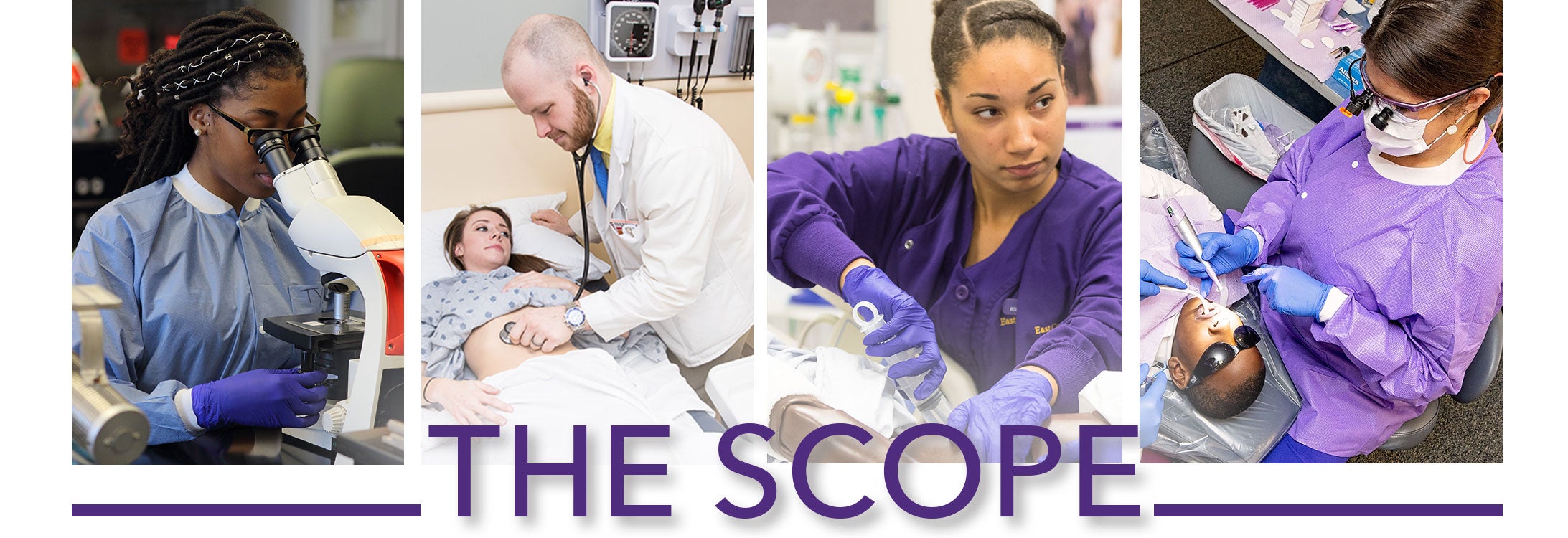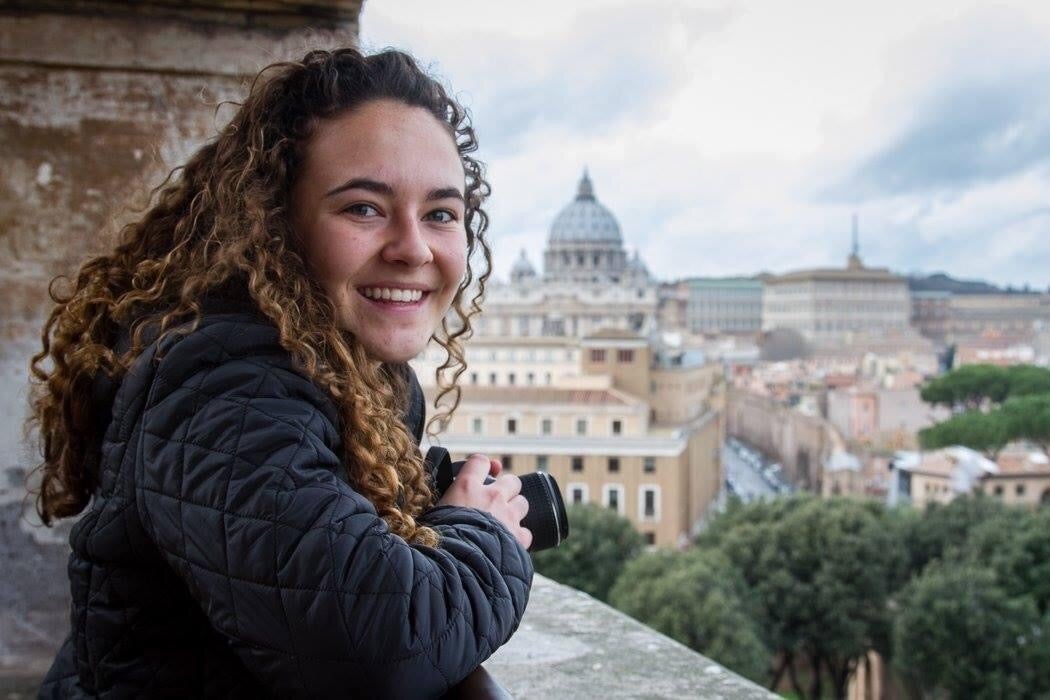March 2021
Welcome to “The Scope,” the newsletter of the ECU Division of Health Sciences.
Welcome to the March 2021 issue of The Scope, the newsletter of the ECU Division of Health Sciences.
With hints of spring come promising signs that we are making progress in the fight against COVID-19. While we are seeing vaccinations continue and our numbers of infections and hospitalizations showing mostly positive trends, I am cautiously optimistic but want to urge everyone to remain vigilant in following safety guidelines and keeping our communities safe.
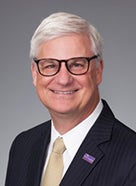
Dr. Mark Stacy
During this time, those in the Division of Health Sciences have continued to do what they do best—creating solutions—from vaccinating people in our most rural communities to maintaining watch over patients and their everyday health care needs. Our researchers have set aside projects they were committed to in order to pursue immediate research needs related to COVID-19. Faculty and staff have been compassionate and purposeful in finding alternate means of helping students meet their academic and clinical requirements. They have also ensured that their milestone events and celebrations proceed in new forms but with all of the traditional fanfare.
Thanks to everyone in the division for staying the course.
When it became apparent that we were headed toward a pandemic, each of us assessed how best we could respond and lend our knowledge and skills to the health and safety of our communities. We all took different journeys as we were called in different directions, many of them unexplored and uncertain.
But our paths converged at a point of hope, where they remain today.
I have watched our providers, faculty, staff and students bring out the best in themselves and each other on their journeys to take care of all those around them. I have seen examples of outreach within our region and overseas. Our doctors have joined with community partners to literally drive the vaccine to rural communities—which in turn has helped drive out fear and uncertainty. Others pooled resources to create hand sanitizer as a line of defense and campaigns that educate people young and old about COVID-10 and how to stay safe. Representatives of the division have helped ensure access to care and information from one end of North Carolina to the other.
These examples of stellar service come at a turning point for our university—the transition of leadership this month from Dr. Ron Mitchelson to Dr. Philip Rogers as the 12th chancellor of ECU. We are confident that Dr. Rogers’ leadership will guide us into the next chapter of higher education and health care.
I also want to take this opportunity to celebrate our physicians in observance of National Doctor’s Day, which was officially marked on Tuesday, March 30. Now more than ever, we are witnessing the importance of physicians and their roles not only during the pandemic but every day. I encourage everyone to honor a physician by visiting the Doctor’s Day website and sending them a message of gratitude or encouragement.
On any given day of the year, I appreciate the work that those in the Division of Health Sciences—our providers, educators, faculty, staff and supporters—do for our campus and community. I look forward to a time when we can once again work closely together toward our common goals. Until then, I encourage each of you to continue following safety guidelines, receive the vaccine when it is available to you and educate others on how to stay safe and well.
Mark Stacy, MD
Dean, Brody School of Medicine
Vice Chancellor, Division of Health Sciences
Education
The division continued serving students through academic and clinical experiences as well as hallmark events in their educational journeys.
Fourth-year students in the Brody School of Medicine learned on March 19 where they will spend the next several years of their lives. As part of the annual Match Day event, medical students across the United States were notified at noon – through letters or emails – where they will be completing their residency training.
ECU usually hosts the highly anticipated Match Day ceremony in the Brody Auditorium in front of family, friends and faculty. For a second straight year, however, the COVID-19 pandemic forced Brody’s medical students to celebrate the occasion with a drive-thru event.
“The COVID-19 pandemic has brought unique challenges and experiences to our educational program. Through it all we have been able to keep the class of 2021 moving to graduate on time,” said Dr. Kendall Campbell, Brody’s senior associate dean for academic affairs. “Today as we celebrate Match Day with them, we are so very excited and happy to see their resilience and encourage their transition into their next phase of training.”
On March 2, the 2021 Research & Scholarship Awards ceremony honored ECU and Division of Health Sciences faculty for their research accomplishments. Along with recognizing the Five-Year Achievement for Research & Creative Activity Award winners, ECU honored faculty members throughout the university for their research, creative activity, inventions and community engagement contributions over the past year. Faculty from the School of Dental Medicine were honored as researchers and inventors for their accomplishments in 2020.
Dr. Mark Moss, associate professor in the dental school’s Department of Foundational Sciences, was awarded three grants as principal investigator in 2020 and serves as co-principal investigator on another. He said the recognition represents the school’s mission of improving the health and quality of life of all North Carolinians and emphasizing community-based, service-learning oral health education.
“I consider it a true privilege to work along-side the future leaders of dentistry in North Carolina. I also am a learner in this adventure,” Moss said. “The gap between public health and clinical practice is wide, and there is a need to find ways to bridge the gap for our underserved and disadvantaged populations. ECU School of Dental Medicine is uniquely positioned to address this gap.”
The College of Nursing celebrated several milestones recently, including marking another first in the state. The Society for Simulation in Healthcare recently granted full accreditation to the College of Nursing’s simulation program, making ECU the only public university in the state with a fully accredited nursing simulation program. The program’s accreditation — in the area of Teaching and Education — was officially announced as part of a virtual ceremony during the International Meeting on Simulation in Healthcare (IMSH) conference in January. The college’s simulation spaces account for 7,700 square feet on the building’s second, third and fourth floors.
The College of Nursing inducted 22 members to its Hall of Fame recently. They joined the ranks of the college’s most esteemed alumni and supporters on Friday, March 5, while two received the honorable Distinguished Alumni title during the college’s virtual Hall of Fame ceremony. Because the pandemic forced the celebration of the 2019-2020 inductees to be postponed, this year’s celebration honored both 2019-20 and 2020-21 inductees and Distinguished Alumni. The group of 22 inductees and two Distinguished Alumni — Dr. Mary Chatman and Dr. Kimberly Hardy — comprised the largest group honored at once since the Hall of Fame’s inception in 2011, when the college inducted 40 inaugural members.
Dr. Mark Newell, Brody School of Medicine associate professor of trauma and surgical critical care, was the keynote speaker for the College of Nursing’s sixth annual Black History Month event on Feb. 25. Newell discussed how centuries of misconceptions about and mistreatment of African Americans continue to cause health care disparities among the Black community today. He also highlighted the successes of Black health care providers and researchers.
“These doctors have succeeded because of the opportunity they were given, the opportunity to express their creativity, the opportunity to become what their creator planned for them to become, the opportunity to prosper, and in return, to serve; the opportunity to exercise their work ethic and their ingenuity,” Newell said.
Visit this video on YouTube for the closed-captioned version.
Patient Care
The division’s providers and all those who care for patients are working to ensure that patients in the East and beyond are cared for on all levels.
The state continues to roll out vaccine phases, and appointments on campus and in the community continue to be filled by those who meet current vaccination criteria. The university also continues to share community expectations for those on campus now and as the state and university continue to reopen and welcome more faculty, staff and students to in-person classes and events.
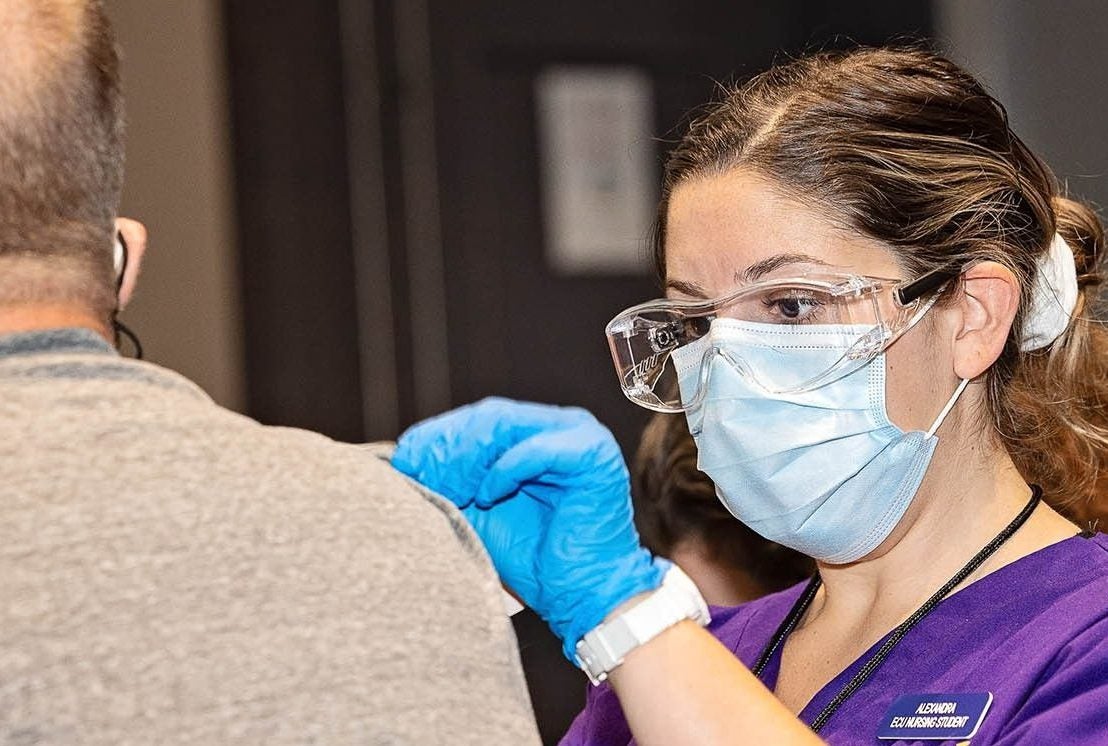
ECU Nursing student Alex Yllanes gives COVID-19 vaccines during a clinic event at the Greenville Convention Center March 23, 2021. (ECU Photo by Cliff Hollis)
During the pandemic, providers have encouraged patients to maintain their long-term care routines as safety allowed. As part of Health Sciences Communications’ “7 Questions” series that focuses on topics of interest in research and health care, faculty from the School of Dental Medicine offered expertise on the importance of maintaining dental care and how the school’s clinics on campus and across the state put extra precautions in place to keep patients and providers safe.
“Oral health has a direct impact on physical health, and poor oral health has been associated with a number of medical conditions. For those patients at higher risk of decay, delaying treatment could mean the difference between keeping and losing teeth,” said Dr. Ed Connelly, the dental school’s interim associate dean of clinical affairs and division director of predoctoral education. “We have been treating patients at the school since the start of the pandemic with no known transmission of the disease, and we follow CDC guidelines on infection control.”
Laupus Health Sciences Library’s Diversity Committee hosted a virtual roundtable on March 10, called “Coping through the COVID-19 Pandemic: Diverse Experiences.” Featured panelists included faculty from Brody’s Department of Psychiatry and Behavioral Medicine. The library has hosted virtual events during the pandemic to connect the campus community with experts and resources who offered solutions and collaboration to a variety of health care and educational challenges brought about by the pandemic.
Combined with faculty volunteer efforts, the College of Nursing has provided more than 1,800 hours of COVID-19 related support across the state since the pandemic began. Recently, 20 accelerated second-degree BSN students administered vaccines at one of Vidant Health’s large scale COVID-19 vaccine clinics at the Greenville Convention Center. Another 30 groups with a total of 15 faculty and 175 students are scheduled to assist with clinics between March 21 and April 30.
“I think we were all really excited to be a part of it,” said student Eric Japczyk Schuler, who gave his first intramuscular injections as part of the clinic.
Faculty and staff in ECU’s Hemophilia Treatment Center observed Bleeding Disorders Awareness Month by sharing information with the community on treatment options for patients. The center is one of only 140 in the United States and one of only five in North Carolina and currently serves nearly 200 patients from 29 counties in the East who live with bleeding disorders including hemophilia, von Willebrand disease, rare bleeding disorders and clotting disorders. It is currently the only center in the state that offers point-of-care musculoskeletal ultrasound by physical therapy.
Visit this video on YouTube for the closed-captioned version.
Research
Research and collaboration remain at the forefront as the Division of Health Sciences pursues solutions to health challenges in eastern North Carolina.
The Brody School of Medicine teamed up with Eastern AHEC to present the 4th annual Rural Health Symposium as a two-day webinar that offered interprofessional sessions, panels and presentations that focus on collaborative efforts to provide better access to health care for rural North Carolinians.
During the COVID-19 Innovations Session, presenters explained how their programs, offices and agencies pivoted during the pandemic to meet constituents’ needs in new ways.
Anna Beth Robertson, a medical student at Brody, talked about her work with the Greenville Community Shelter Clinic, which had limited patient care options pandemic set in. Robertson said telehealth visits were the key to keeping the clinic running and caring for homeless patients—a vulnerable population particularly susceptible to chronic conditions. With the help of community and ECU partners, telehealth was able to see patients and prescribe much-needed medications.
“We really needed to be able to talk to our patients in order to get them the best care possible,” she said. “We really enjoyed being able to meet our patients where they are and see them face to face.”

Dr. Jamie DeWitt of Brody’s Department of Pharmacology and Toxicology has been studying the immunotoxicity of per- and poly-fluoroalkyl substances (PFAS) since 2005.
“Dentistry in Remote Locations: Lessons from the Armed Forces” featured dentists from the Army, Navy and Air Force and was facilitated by Dr. T. Rob Tempel, associate dean for extramural clinical practices for the East Carolina University School of Dental Medicine. After the presentations, Tempel said rural dentists often feel isolated, a problem that the ECU dental school and its community service learning centers across the state are working to address.
“The teamwork you’ve talked about really needs to exist in civilian dentistry,” he said. “Through teledentistry, that can happen. We all have the common goal of improving health in North Carolina.”
Dr. Lok Pokhrel, assistant professor in Brody’s Department of Public Health, has quantified the risks of a flavoring compound in electronic cigarettes—the same substance that gives buttered popcorn its flavor. Pokhrel recently published his findings in “The Science of the Total Environment” journal.
Pokhrel and two doctoral students, Avian White and David Wambui, investigated the effects of diacetyl— an organic compound found in foods and additives that are used for dairy flavoring. It is also a toxicant commonly found as a flavoring component of “e-juice,” the flavoring formulas used in e-cigarettes. Diacetyl is found in tobacco cigarettes as well.
“This is the first study to specifically quantify actual risks of inhaled diacetyl exposures among teens and adults using the deterministic risk assessment framework,” Pokhrel said. “Our results suggest the need to regulate the use of e-cigarettes among teens and adults.”
Dr. Jamie DeWitt of Brody’s Department of Pharmacology and Toxicology DeWitt testified in front of a U.S. House of Representatives subcommittee alongside Erin Brockovich on March 24. This was the third time she has testified in front of Congress about the dangers of PFAS in the last three years.
DeWitt was recently selected to join the National Academies’ Standing Committee on Use of Emerging Science for Environmental Health Decisions. The committee of 16 environmental science and policy experts is charged with convening several workshops each year to explore how new scientific advances, technologies and research methodologies could deepen our understanding of the effects of environment on human health.
DeWitt has been studying the immunotoxicity of per- and poly-fluoroalkyl substances (PFAS) since 2005. Her work explores how emerging environmental contaminants can alter immune function and how early life or adult exposure to environmental contaminants may impact the immune and nervous systems and how contaminants may disrupt how these systems communicate with one another.
Visit this video on YouTube for the closed-captioned version.
DHS Spotlight
In the spirit of excellence in education and a collaborative campus, we will be highlighting a variety of students, staff and faculty who represent the colleges and schools in the Division of Health Sciences.
This month, we meet Maggie Marshall, a doctoral student in physical therapy in the College of Allied Health Sciences.
As an East Carolina University undergraduate student, Maggie Marshall had an opportunity to shadow physical therapists at Walter Reed National Military Medical Center.
Now a doctoral student in physical therapy, Marshall dreams of working at the military health center one day. But wherever she goes, she plans to work with veterans — in large part because of her time at Walter Reed as well as her clinical experience this semester at Seymour Johnson Air Force Base in Goldsboro.
“Some of my family members and close friends have served in the U.S. military, which has also contributed to my interest in working with veterans,” Marshall said. “I recently completed a health promotions project with a fellow classmate in PT school, Megan Warfield, and we discovered there is an increased incidence of chronic pain in veterans compared to civilians. The physical and psychological factors associated with chronic pain can lead to a decreased quality of life. Exercise and physical therapy have been previously shown to decrease chronic pain and improve physical function, so there is a need for physical therapy services in this population.”
Marshall, who will graduate in May, earned a bachelor’s degree in exercise physiology in 2018 as an ECU Honors College student and EC Scholar. studied in Italy with the ECU Tuscany program in spring 2016, followed by a summer in Peru, where she was able to visit friends in the biology graduate program. Last March, before the coronavirus pandemic closed borders, she traveled with other students from the ECU College of Allied Health Sciences on a medical brigade to Taulabé, Honduras.
“I chose ECU for both of my degrees due to the accessibility of knowledgeable mentors in my field of study,” she said. “I’ve had the opportunity to participate in numerous research projects in biomechanics labs across campus, which has emphasized the importance of evidence-based practice in the physical therapy field. I also chose ECU because of the multiple study abroad experiences offered and the opportunities for financial aid to participate.”
Philanthropy
The Medical & Health Sciences Foundation houses opportunities for supporting health sciences programs that benefit students, faculty, patients and communities.
Pirate Nation Gives 2021 was a great success for the Division of Health Sciences. Once a year, Pirate Nation Gives highlights funding needs across the university and celebrates the philanthropy provided to meet those needs. This year yielded the highest level of participation from the Division of Health Sciences since the program’s beginning.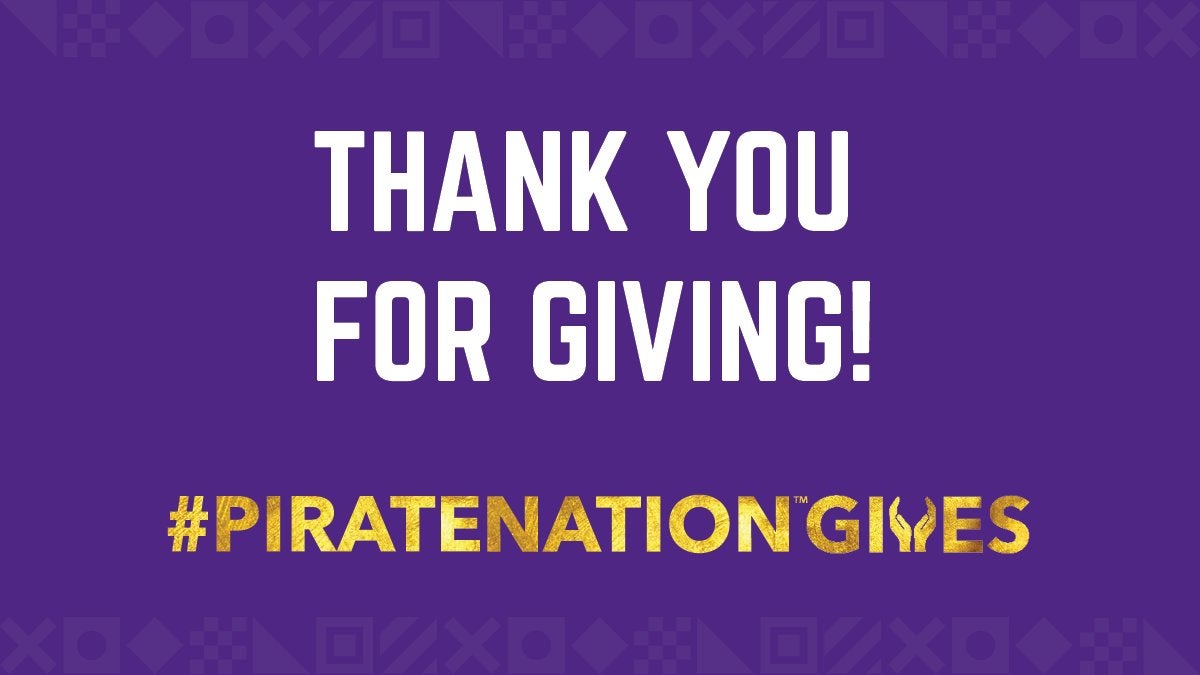
College of Allied Health Sciences departments competed against each other to raise the most money and get the most donors throughout the day. Overall, the college raised $7,326 from 109 donors. The Department of Health Systems and Information Management Department won Dean Dr. Robert Orlikoff’s “Pot of Gold Challenge” and received an additional $1,000.
School of Dental Medicine Dean Dr. Greg Chadwick challenged the School of Dental Medicine’s community service learning centers to see which one could raise the most money for Patient Care Funds. Throughout the day, 77 donors gave $2,380. The CSLCs in Sylva, Brunswick County and Ahoskie all won bonus money that will be used for patient care.
The College of Nursing had several generous donors offer challenge gifts if 10 new donors would give $2,100 on Pirate Nation Gives. At the end of the day, 20 donors gave $6,825 to the college, which unlocked an additional $31,000 in scholarship and faculty support funds.
The Brody School of Medicine received a five-year $25,000 pledge to the Brody Loyalty Fund from an alumnus on Pirate Nation Gives.
The Pandemic Response & Research Fund that supports COVID-19 response and research across the division raised $830 on from four donors on the day of giving and received an additional gift of $10,000 the following day.
If you missed Pirate Nation Gives and want to make a gift in support of faculty and student support, scholarships, patient care funds or ongoing pandemic response and research, please click on the links in the article above or below and make a gift.
- Give to the College of Allied Health Sciences
- Give to the Brody School of Medicine
- Give to the School of Dental Medicine
- Give to the College of Nursing
The ECU Medical & Health Sciences Foundation also serves as the primary fundraising entity for the William E. Laupus Library, the East Carolina Diabetes & Obesity Institute, and the East Carolina Heart Institute.
Learn more about how you can support the mission of ECU’s Division of Health Sciences through the ECU Medical & Health Sciences Foundation, Inc.
